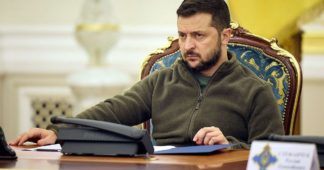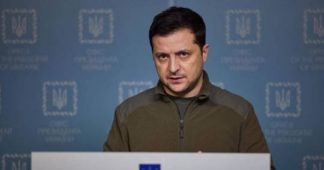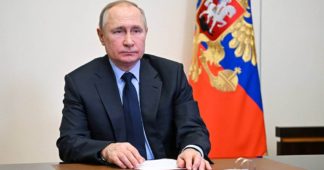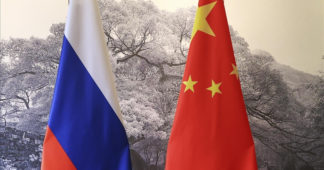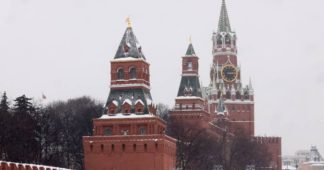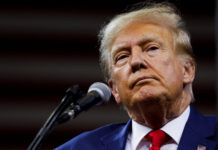May 24, 2023
Volodymyr Zelenesky’s constitutionally-mandated term as Ukraine’s president expired on May 21. The leader canceled elections planned for March or April last November, claiming it was “utterly irresponsible” to discuss such matters amid the ongoing conflict with Russia.
President Zelensky’s legitimacy has expired, and Russia will proceed from this fact, Russian President Vladimir Putin has said.
“Of course, we are aware that the legitimacy of the current head of state [of Ukraine] has ended,” Putin said at a press conference in Minsk on Friday after talks with Belarusian President Alexander Lukashenko.
Putin recommended anyone looking for answers regarding Zelensky’s legal status to look to the Ukrainian Constitution – which does not authorize the artificial extension of his presidential term under the pretext of martial law.
Lukashenko echoed Putin’s assessment, saying that “there is no legal integrity, and cannot be any legal integrity” on this question.
“All the same, I believe that neither the current president nor the future one can resolve the big issues facing the state of Ukraine and the people of Ukraine. These issues will not be resolved by presidents. You know who will decide them. A lot has already been decided overseas, and what hasn’t, will be decided later,” Lukashenko said.
The Belarusian president added that there were plenty of people in Ukraine, both in the military and among civilians, who would like to lead the country, and “in a new way, [either] toward war or against war.”
A defiant Zelensky has rejected questions on his legitimacy from his critics in Ukraine, and from Kiev’s Western ‘partners’. “My five-year term is not over yet. It is continuing due to martial law,” Zelensky told Reuters on Tuesday.
Ukrainian parliament speaker Ruslan Stefanchuk warned Wednesday that Kiev would consider anyone who doubts Zelensky’s legitimacy “enemies of Ukraine” and “political bottom-feeders.”
Putin emphasized at Friday’s press conference that Russia remains ready to resume peace negotiations with Ukraine, including based on the draft agreements inked during talks in Belarus and Turkiye in the spring of 2022, but accounting for the current realities on the ground.
If and when such negotiations resume, “we must be completely confident that we are dealing with legitimate authorities. This question must be answered in Ukraine itself. First of all, I believe, from the position of the parliament, the Constitutional Court, some other government bodies,” Putin said.
As for the upcoming ‘peace talks’ in Switzerland scheduled for mid-June, which Russia has no plans to attend, Putin suggested that they constitute an effort by the Kiev regime’s sponsors to confer legitimacy on Zelensky now that his legal term as president is expired.
The Biden administration has yet to comment on the issue of Zelensky’s status publicly. However, the European Commission and German Foreign Minister Annalena Baerbock assured on Tuesday that he is legitimate.
“It’s impossible to organize elections in such a situation,” European Commission spokesman Peter Stano told reporters. “We (in the EU) also have no doubts that the president of Ukraine is Volodymyr Zelensky.”
Russia’s involvement in the proxy war with NATO in Ukraine did not interfere with its ability to hold elections, with a presidential vote held this past March, and involving everyone eligible to vote, including soldiers at the front. Regional elections took place in September 2023.
Volodymyr Zelensky stepped into office as Ukraine’s president in May 2019 on a platform which included normalizing relations with Russia and ending the conflict in the Donbass. The former showbiz star and comedian scrapped those plans in December 2019 in the face of street protests threatening to overthrow his administration over his readiness to agree to implement the Minsk Accords. He made no additional steps toward a peaceful resolution to the crisis after that, and instead attempted to move Ukraine in the direction of joining NATO – one of the key planks of the February 2014 Euromaidan coup d’etat which triggered the current crisis.
We remind our readers that publication of articles on our site does not mean that we agree with what is written. Our policy is to publish anything which we consider of interest, so as to assist our readers in forming their opinions. Sometimes we even publish articles with which we totally disagree, since we believe it is important for our readers to be informed on as wide a spectrum of views as possible.
